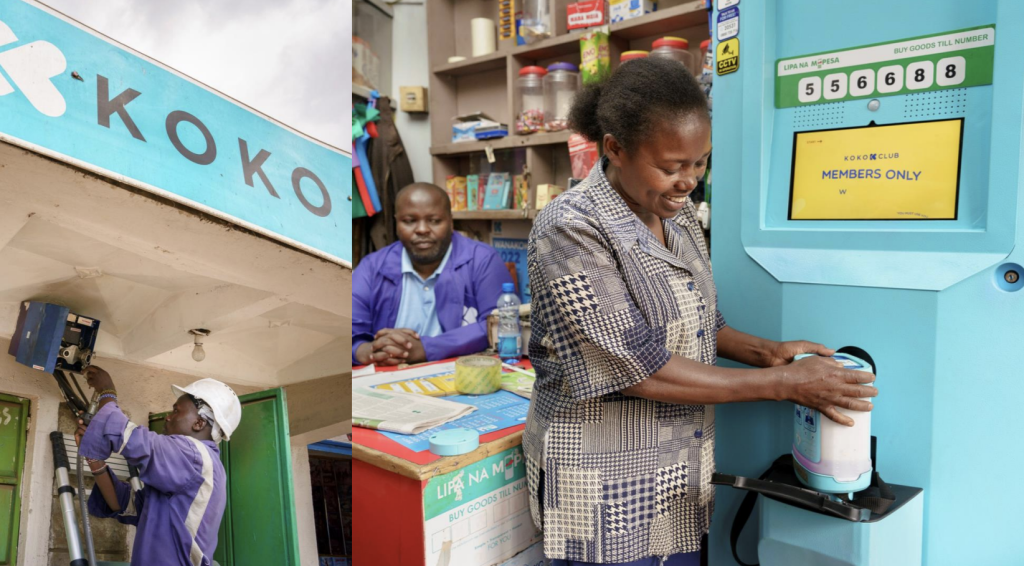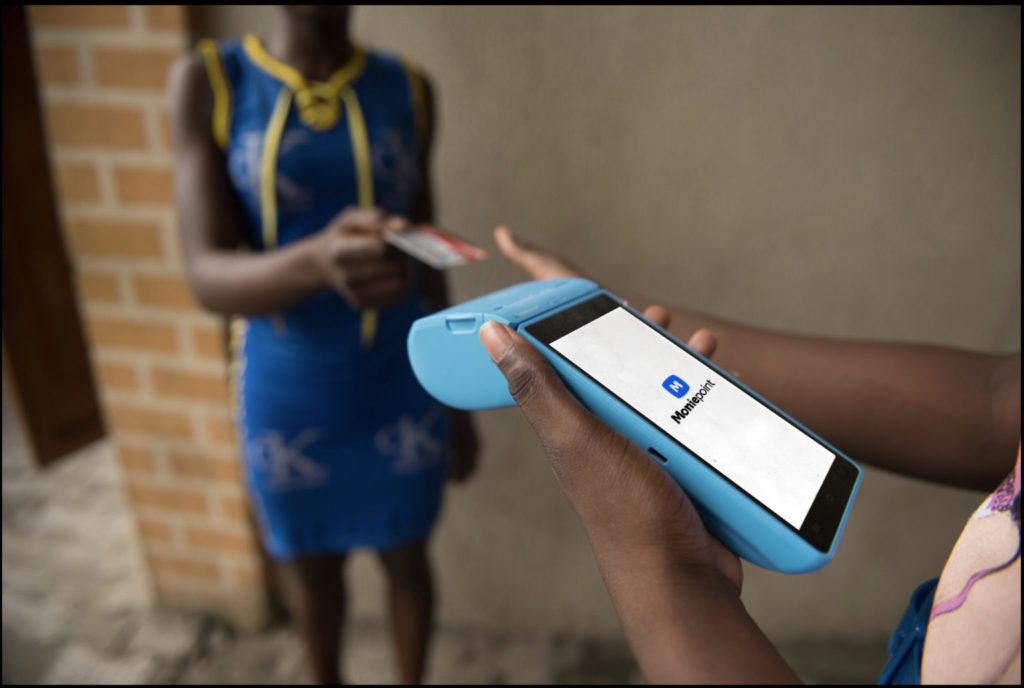For many, all they need to learn Aerospace engineering is a laptop and enough data. For a lot more people however – like me – learning new skills takes a whole lot more. Patient guidance of a human instructor and also a feeling of being invested in the process readily come to mind. This means I like to pay for my lessons. I used to like free lessons until my Tennis career refused to pick up because I won’t show up at my sessions, on time. I realized, one of the reasons I took my lessons for granted was because I didn’t feel invested. My money was not on the line. It’s odd, I know.
I don’t even think anyone is remotely like me in learning, but if you like to be taught by a human in the age where everything else is becoming more and more virtual, Godwin Benson’s Tuteria (an intelligent play on the word ‘Tutorial’ by the way) have a proposition you’ll be interested in.
The product is a hyperlocal instructor’s marketplace that allows users sign up and recruit tutors from around their neighbourhood. Tuteria launched back in May (we wrote about it here) and I caught up with Godwin Benson, the CEO, a former employee at Deloitte – the international audit and financial advisory firm – to talk about the how far along they have come in the journey.
Our interview:
Thanks for speaking with us Godwin. How is Tuteria? I’m interested in the adoption really. It’s been few months since launch.
It’s been splendid. We started signing up tutors about two months ago with over 7,500 applicants nationwide which we’ve been able to screen down to a little over 2,300. On the client side, we haven’t really started marketing to them yet, as we still need to fix a couple of issues. We’re doing live testing at the moment.
How has Tuteria iterated since you rolled out three months ago? I see you upgraded your website, and even have a livechat on there. What other things have you moved around?
It wasn’t really an “upgrade” of the site as such. It was just the aspect of the site we hadn’t revealed since we were still assessing tutors and didn’t want clients to be able to hire them yet. Now that we’re preparing for that phase, we decided to reveal those portions of the site. We noticed even without marketing, word had spread and people already wanted to hire tutors for various skills, so we thought of putting up the live chat to sort of guide them through it. However, we’re testing various hiring processes to see which ones work for various audiences. For example, a “typical” Nigerian parent may not want to search through various tutors and pick one [they’ll rather have one recommended], while someone preparing for ICAN or who needs a swimming instructor actually prefers to evaluate them first and choose one. So we’re testing different flows for different audiences.
Nice. I actually thought the livechat was merely for customer support by Tuteria staffers.
Yeah, it’s for customer support actually, and we also use it to monitor user flow via the site. So if we see someone exhibiting a behavior that suggests he/she needs help, we pop in.
I like it much. I was a bit creeped out though when you popped up asking if I needed help. It felt like in the novel 1984 with the big brother all over the place. What other, not so obvious changes have you implemented?
Haha, very interesting. Clients actually appreciate it, and get to ask quite a lot of questions. So we might be leaving it there for while.
Well, for now we’re basically working on the hiring flow for parents which technically, only (or mostly) “parents” will get to see. So even if I mentioned it now, it’ll be really hard to find it by going to the site. Also, on our search pages we’ve made monthly pricing the default because we realized people quickly understand when they see N24,000 ($120) per month, than when they see N1,000 ($5) per hour.
Cools. We’ll talk more about Tuteria later, but now, let’s talk about you. I know that you left Deloitte to pursue this project. Tell us more about that.
Great. Well, Deloitte was a great place, I met a lot of smart people there who further helped refine the idea. I worked as an Associate Information Security Consultant. I left when I knew it was time to leave. I’d been working on the idea for Tuteria since last quarter of 2013 before I started working in Deloitte, so when I thought I had a plan we could kick off with, and a small team who also believed in it, I decided to focus on it fully for now.
How about you? You were quite the prodigy in college, we hear.
Well, yeah. I did quite well on campus (at least that what the results say). I studied Systems Engineering at the University of Lagos, and graduated First Class. Was also the best graduating student in the engineering faculty and third-best in the entire graduating set. I’m from Akwa-ibom, the third of four children. I’m usually a very thorough person, and demand high standards for excellence from myself, and people I work with. I love helping people succeed. And I’m also engaged.
Congrats on the engagement. Was leaving Deloitte hard to do?
Not really. Making the decision to leave wasn’t hard. The thought of the opportunities Tuteria would create for thousands of people was enough driving force. However, speaking to my bosses about it was hard. But surprisingly, when I told them why I was leaving, they were very supportive of the move. This made it easier, plus I wasn’t broke, and I had learnt early on to trust God to take care me.
Very important, that. When did you begin to think about becoming an entrepreneur?
I’d always wanted to be an entrepreneur as far back as I can remember. I liked the fact that I could do something and see how it impacts on people’s lives, and the challenges of being an entrepreneur actually made me want to undertake it. But deep down, I’m aware that God sent me to accomplish an assignment here, and being an entrepreneur is just one way I can get it done.
What inspired Tuteria?
Tuteria was inspired at the time I taught a man’s children for one month and didn’t get paid afterwards. I was a bit hurt that he did that to me. I was in high school at the time, so I wanted to do something to prevent others from experiencing such. But down the line, I discovered people wanted to learn a lot of things but had no easy way to find those that can teach them, especially when those same people stayed close by. So the vision for Tuteria grew from just academics to non-academics and skill acquisition.
Great journey. Thanks for sharing that.
Services like Tuteria come with forebodings regarding safety. Remember OLX? Personally, I am not sure how I feel about arranging offline meeting with people I met online. How do I know this person is not a serial killer right? And this fear is just as much for the tutor as the client. How are you working around this? Especially with verification and validation
Alright, the concerns about safety is legitimate, however we have put some measures in place to keep Tuteria safe for both tutors and clients. Here’s what we’ve done: first of all, all tutors must verify their online and offline identities before they can even begin the application process. They supply us with their government issued IDs, personal details as well as profile photo, and also connect to one of their social networks. We manually review all the details and information from all three sources must match before they can even proceed. Those who can’t provide these requirements or whose information is not consistent, are automatically denied. We also partnered with a background check company to conduct background checks on tutors, at the request of clients – they do criminal record check and address verification check.
We’re now introducing references and guarantors for each tutor, who will be a respected person that can vouch for the tutors’ conduct and personality. We also have a slightly different process for verifying the guarantors.
Also, after every lesson, we give clients and tutors opportunities to review each other which will be publicly displayed on their profiles. So clients can feel safer when they see reviews from a few clients who have engaged a tutor in the past
Moreover, for most subjects, tutors have to pass various competency steps and write about their experience with the subject and/or provide supporting documents to prove their proficiency e.g. an ICAN tutor would need to send us his/her ICAN certification. etc.
That looks pretty solid. I like the the review system. Have you had anyone request this special background check? And, what is the name of the background check company?
We use Background Checking International. Like I said earlier, we haven’t even revealed the full site, so the feature can’t be seen yet. We’re still fine-tuning a couple of things in that regard so no one has requested it yet because they can’t see it yet.
Are there figures you can share? How many tutors do you have on there right now? How many requests have you processed from clients? How are tutors and students distributed along gender parameters? What part of Lagos have you seen most engagement? And other fun figures you want to share.
I don’t think we want to share these exact figures at the moment. We do have quite a number of instructors across Nigeria, and client requests are slowly building up even without having started any serious marketing. Lagos obviously has been the highest, we’ve also seen requests from Enugu, Abuja, Imo and Port-Harcourt.
That’s fine. I’m curious about your livechat. I ran into you in there the other day. I was bit surprised it was really you and told you as much. I fancied you’d be taking care of other more executive tasks. Why were *you* there? Also tell me about your team.
For the time being, I’m taking full responsibility to relate with and respond to clients. I want to be sure I thoroughly understand how they’re using our site and the things that matter most to them. Nothing is more important to me now, then understand what exactly the way.
About my team. We’ve got an education consultant, a developer, a web designer, a customer support staff, a tuition manager, a business strategist, a quality control personnel, a marketing strategist, a CEO, a CTO, a data analyst, a safety personnel, all represented in the three incredibly smart people that work here.
How is Tuteria making money, though? Or perhaps, how does Tuteria plan to?
Oh! The main way we earn income is by taking a commission on every booking tutors receive from the platform. It’s pretty simple. It’s free for tutors to sign up, and we don’t charge clients anything extra. We make money when the tutors make money.
How much funding did you start Tuteria with?
None! When we started, my co-founder and I only had our savings, but we really didn’t have to spend much since we were going to build everything ourselves. But so far, we’ve received about NGN4 million ($20,000) in grants – Niara-Africa Inspire, and Microsoft Lumia Nigeria – which have come in handy.
Do you plan on taking on investors soon?
Do we plan to take on investors? Sure. Do we plan to do so “soon”? Not sure. We’re still in the phase of dealing with initial customer acquisition that every new business has to face. We want to get past this stage first and be able to have a tested and profitable business model before bringing on investors. I think it’s best that way, both for them and for us.
How big can this get? What’s Tuteria’s expansion plan for the next five years?
Tuteria is pretty big. It provides a solution to three things that are fundamental to human development: the need to learn things that matter to us, the desire to make impact in our communities and also make extra money. We’ll looking at Africa at first, and that’s why we built our site the way we did. But, we need to succeed in Nigeria first, then move on from them.
What do you imagine can stop Tuteria from being as big as you imagine it will be?
The quality of tutors I believe, and maybe some regulation down the line (since it has to do with education).
Interesting. We’ll be watching keenly. Have you heard of Neartutors?
Oh, sure I have.
What do you think about them? Your models are similar. What do you think your differentiators are?
Well, I did look them up twice or so, and I think they’ve done a pretty nice job so far. I haven’t really thought about our differentiators as such, I simply wanted to learn from what they had done.















